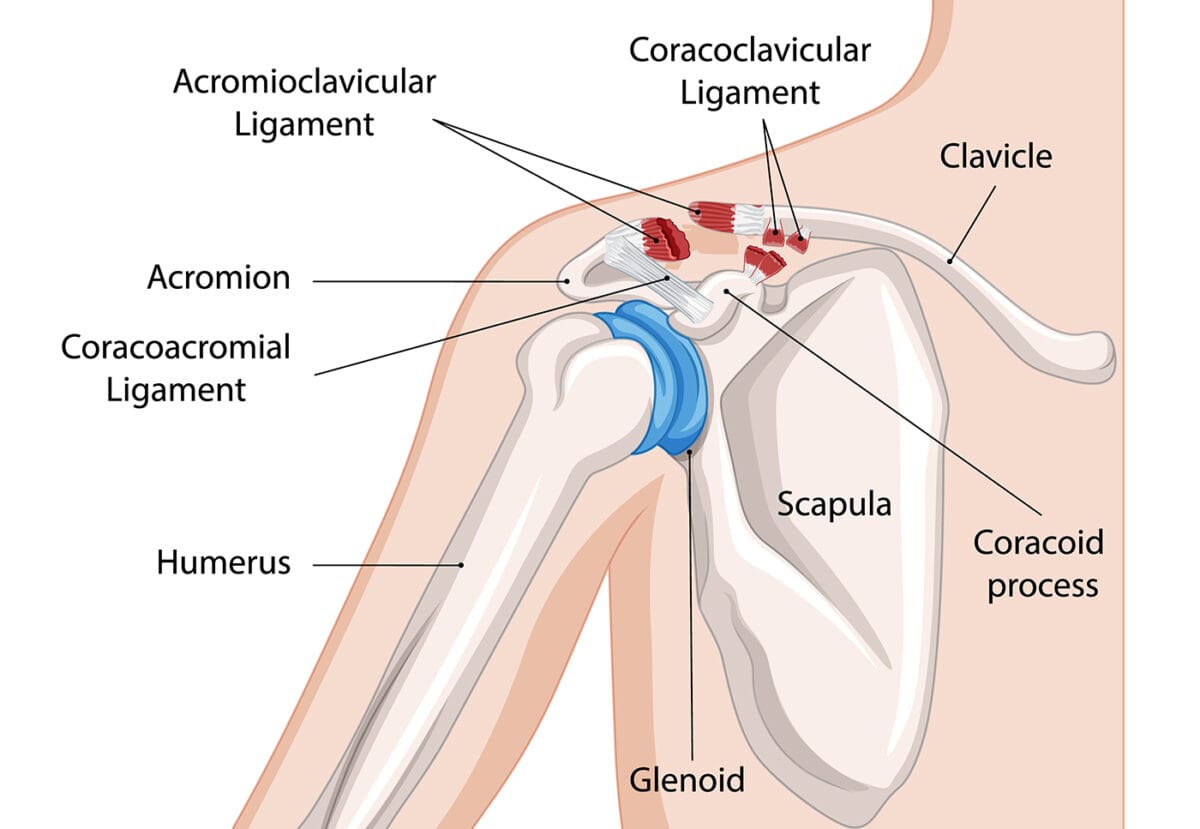Shoulder pain is a common issue that can affect anyone, whether you’re an athlete, a desk worker, or someone engaging in daily activities. Understanding the causes, prevention strategies, and effective treatments can help you manage this discomfort and improve your quality of life.
Thankfully, the physiotherapists and chiropractors at Triangle Physiotherapy are well-versed in diagnosing and treating shoulder conditions and also making sure you know what to do to prevent future recurrences.
Lets dive into a detailed look into shoulder pain!
Understanding Shoulder Pain

Shoulder pain can arise from a variety of sources, including injuries, overuse, and underlying medical conditions. Common causes include rotator cuff injuries, tendonitis, bursitis, arthritis, and referred pain from the neck or back. The shoulder is a complex joint with a wide range of motion, making it susceptible to strain and injury.
Prevention
Preventing shoulder pain involves proactive measures to protect your joints and maintain strength and flexibility. Here are some key strategies:
- Proper Posture: Maintain good posture while sitting and standing to reduce strain on your shoulders. Be mindful of your alignment, especially when using computers or mobile devices.
- Strength Training: Regularly engage in strength training exercises to support shoulder stability. Focus on the rotator cuff and shoulder blade muscles.
- Warm-Up Before Activity: Always warm up before engaging in sports or physical activities to prepare your muscles and joints.
Importance of Physiotherapy for Shoulder Pain
Physiotherapy is essential in diagnosing and treating shoulder pain. A physiotherapist can create a personalized treatment plan that includes exercises to strengthen the shoulder muscles, improve flexibility, and promote healing. They can also provide manual therapy and modalities like ultrasound or electrical stimulation to alleviate pain. Early intervention can prevent chronic issues and aid recovery.
Neuromuscular Exercises for Pain
Neuromuscular exercises focus on improving coordination and strength, which are crucial for shoulder health. Effective neuromuscular exercises for shoulder pain include:
- External Rotations: This exercise targets the rotator cuff, enhancing stability.
- Scapular Retractions: Strengthens the muscles around the shoulder blades, promoting better posture.
- Wall Angels: Improves shoulder mobility and encourages proper movement patterns.
Progressive Resistance Training
Incorporating progressive resistance training into your fitness routine can greatly benefit shoulder health. Gradually increasing the weights you lift helps build strength and endurance in the shoulder muscles. Focus on compound movements like overhead presses and rows, ensuring you maintain proper form to avoid further injury.
Incorporating Mobility into Your Daily Routine
Mobility exercises enhance flexibility and range of motion, crucial for preventing shoulder pain. Simple stretches like doorway stretches, cross-body arm stretches, and shoulder rolls can make a significant difference. Incorporate these stretches into your daily routine, perhaps during breaks or before bed, to keep your shoulders flexible and reduce tightness.
Tips for Safely Performing Exercises
Safety should always be your priority when exercising, especially if you’re dealing with shoulder pain. Here are some tips to keep in mind:
- Warm-Up: Always begin with a gentle warm-up to prepare your muscles.
- Listen to Your Body: If any movement causes pain, stop immediately and reassess.
- Use Proper Technique: Focus on form rather than weight to prevent injuries.
Consult Professionals: Work with a physiotherapist if you’re unsure about your exercises or recovering from an injury.
Shoulder pain can be a frustrating condition, but understanding its causes and implementing preventive measures can lead to relief. Always prioritize safety and seek professional guidance when needed. With the right approach, you can manage and reduce shoulder pain, allowing you to return to your favorite activities and enjoy a healthier lifestyle.
We understand that life can get busy but don’t forget to prioritize your health. Book an appointment to get that shoulder checked out at any one of our 8 locations.
Sources:
https://www.physio-pedia.com/Evidence_Based_Interventions_for_Shoulder_Pain




